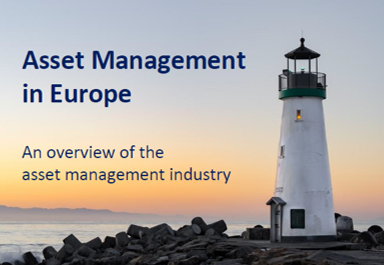Sustainable Finance
The asset management industry plays a key role in meeting the objectives of the European Green Deal to make the EU’s economy sustainable. Our members integrate ESG considerations across their risk management processes and investment decisions. They develop sustainable investment products and foster transparency to fight greenwashing. This increases choice, trust and, in turn, retail investors’ participation. Overall, such efforts mobilise capital towards a fair and just transition to a climate-neutral economy by 2050.
EFAMA actively contributes to the development and implementation of EU’s sustainable finance initiatives. Among them are a comprehensive transparency framework for financial market participants, standards and labels for green financial products, classification of green economic activities and policies enhancing corporate sustainability reporting.
EFAMA reply to JRC CP on 3rd technical report: Development of EU Ecolabel Criteria for Retail Financial Products
Article 8 of the Taxonomy Regulation - EFAMA reply to ESMA CP on draft advice to EU Commission
In its support of the development and implementation of the Taxonomy Regulation, EFAMA believes that reporting on the level of alignment with the Taxonomy by non-financial and financial undertakings is essential to strengthening market integrity around sustainability issues.
EFAMA's reply to ESAs Survey on templates for environmental and/or Social Financial Products under SFDR
EFAMA, the voice of the European investment management industry, believes that, for retail clients, standardised disclosure of information can improve the comparability of financial products that promote environmental and/or social characteristics or have a sustainable objective. It will also contribute to the broader policy objectives of the Sustainable Finance Disclosures Regulation (SFDR) to enhance transparency towards end-investors, hold market participants accountable and fight greenwashing.
EFAMA questions the threshold approach in ESMA’s proposed guidelines on the use of ESG terms in fund names
EFAMA has today published its response to the ESMA consultation on guidelines on funds’ names using ESG or sustainability-related terms. EFAMA members have concerns around the proposed numerical threshold approach as it may not address the underlying greenwashing issues our industry is facing due to the current lack of clarity on many key sustainable finance concepts.
ESAs work on greenwashing should note the difference between misleading with intent and regulatory uncertainty
In an environment with unclear definitions at EU level on key sustainable finance concepts, as well as a lack of complete, comparable and transparent ESG data, all market actors are concerned about the risk of greenwashing.
EFAMA responds to ESMA's Call for Evidence on Greenwashing
In an environment with unclear definitions at EU level on key sustainable finance concepts, as well as a lack of complete, comparable and transparent ESG data, all market actors are concerned about the risk of greenwashing.
3 questions to Thierry Bogaty on the EU Ecolabel for retail financial products
Q #1 Can the EU Ecolabel for retail financial products help channel individual investors’ savings into environmentally sustainable projects?
A well-designed EU Ecolabel has the potential to provide clear guidance on the financial products retail investors can invest in if they wish to support environmentally sustainable projects and activities - in line with the EU Taxonomy Regulation. The European Commission wants to create a trusted and verified label for retail investors, who would benefit from better comparability of financial products.
Asset Management Report 2019
The EFAMA Asset Management in Europe report aims at providing facts and figures to gain a better understanding of the role of the European asset management industry. It takes a different approach from that of the other EFAMA research reports, on two grounds. Firstly, this report does not focus exclusively on investment funds, but it also analyses the assets that are managed by asset managers under the form of discretionary mandates. Secondly, the report focuses on the countries where the investment fund assets are managed rather than on the countries in which the funds are domiciled.

































